Overview :
We’re excited to announce the launch of Expense 2.0, a major upgrade to our expense management module!
This release introduces a brand-new structure for configuring, managing, and assigning expense policies — offering more control, automation, and flexibility than ever before.
TABLE OF CONTENTS
- 1. New Structure: Categories → Policies
- 2. Policy Setup & Flexible Expense Limits (Per Policy)
- 3. Expense Policy Approval Rules
- 4. Profile Page > Expense Tab: View Assigned Policies & Limits
- 5. Expense Submission Flow: Select Policy & View Claimable Balance
- 6. Expense Tab — To Reimburse: New Policy Filter
- 7. Expense Tracker: New Policy Filter in Report Downloads
- 8. Expense Claims Sync to Payroll
- 9. Expense Manual Adjustment
1. ✨ New Structure: Categories → Policies
Previously, admins could only configure Expense Categories (e.g., Medical, Travel).
With Expense 2.0, we now introduce Expense Policies, a powerful new layer within each category.
| Previous Expense Version | Now (Expense 2.0) |
|---|---|
| Expense Category | ✅ Expense Category (for grouping) |
| Claim Form configuration per Category | ✅ Claim Form configuration per Policy |
| Eligibility Rules per Category | ✅ Auto-assignment Rules per Policy |
| No Spend Limits | ✅ Spend Limits per Policy |
| One Category only | ✅ One Category → Many Policies |
✅ This structure lets you define different policies (customizable) under the same category — for example:
Category: Medical Claims
Policies:
Medical Claims (SG)
Medical Claims (ID)
Dental
Outpatient
Note:
Duplicate category names are not allowed.
Duplicate policy names within the same category are not allowed.
The same policy name can exist under different categories.


2. Policy Setup & Flexible Expense Limits (Per Policy)
Each Expense Policy comes with its own settings and entitlement logic.
2.a) Policy Settings
 You can configure:
You can configure:
1) Policy Effective Date
Decide when the policy starts (immediate or future date).
2) Renewal Month
Define when the policy limits reset (e.g., annually).
3) Flexible expense limits
Combine any of the following per policy:
- ✅ Annual Limit
- ✅ Monthly Limit
- ✅ Per Claim Limit
Limits apply per employee, in the same currency.
✨ This new setup provides significantly more flexibility than the previous rules-only approach, empowering you to standardise spend governance across regions and employee groups.

4) Entitlement Start Date
- Based on the employee’s start date or the later of Policy Assignment / Effective Date.
5) Proration Settings
Control how limits adjust for new joiners or leavers:
First Period Proration
Last Period Proration

6) Deduct Limit Based On
Decide which date the system tracks for deductions:
- Receipt Date
- Submitted Date
2.b) Smart Auto-assignment Based on Eligibility
Automatically assign policies based on:
Company, Department, Specific Employees, Location, Position
Combine multiple criteria (AND within group, OR across groups).
Ensures each employee is mapped to the correct policy automatically.
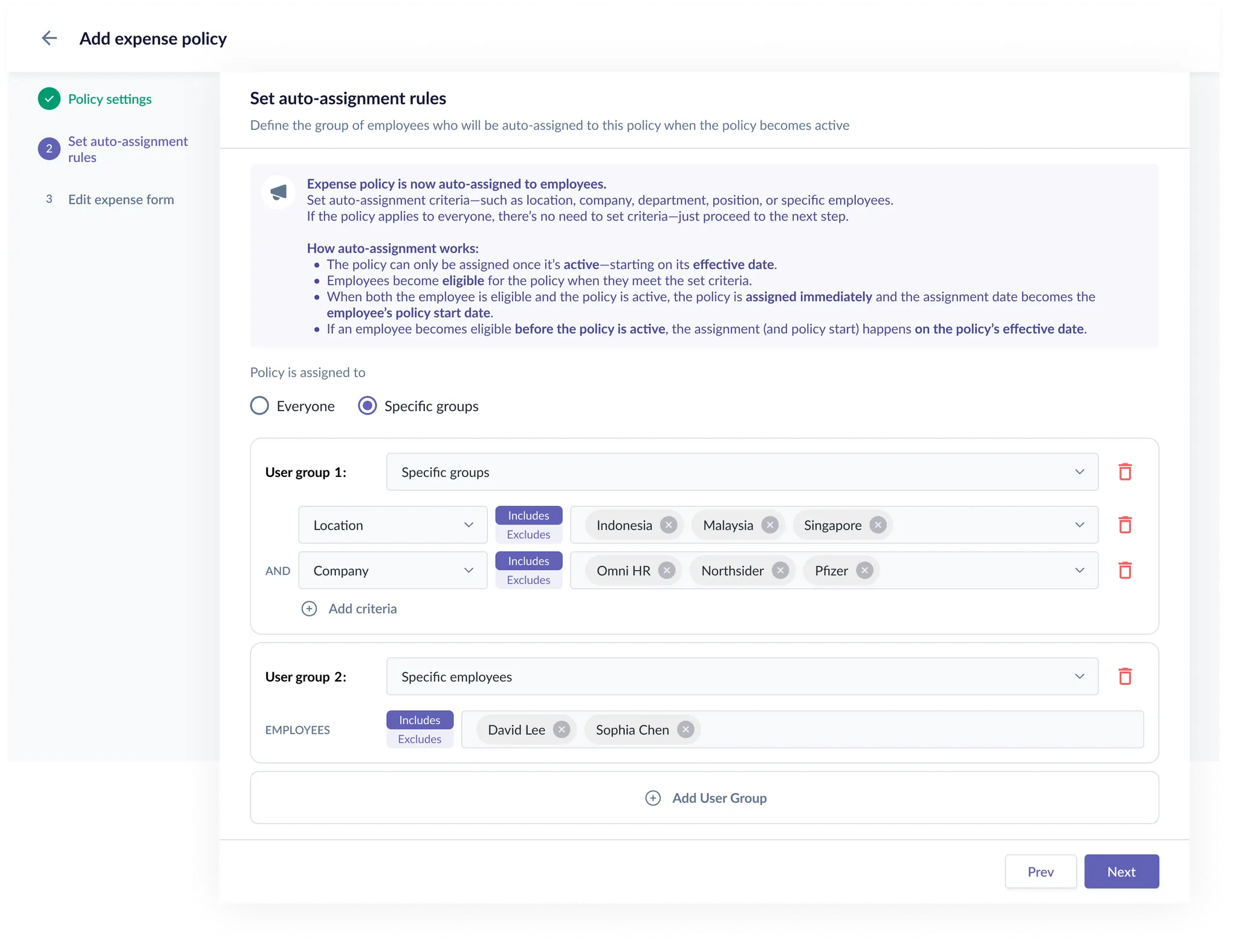
To review who’s assigned to a policy:
Go to Expense Category page → Click View Assignees.

2.c) Customize Expense Form under each Expenses Policy
Expense forms can now be configured per policy, not just per category.
✅ Add custom fields to tailor forms to each policy’s requirements.
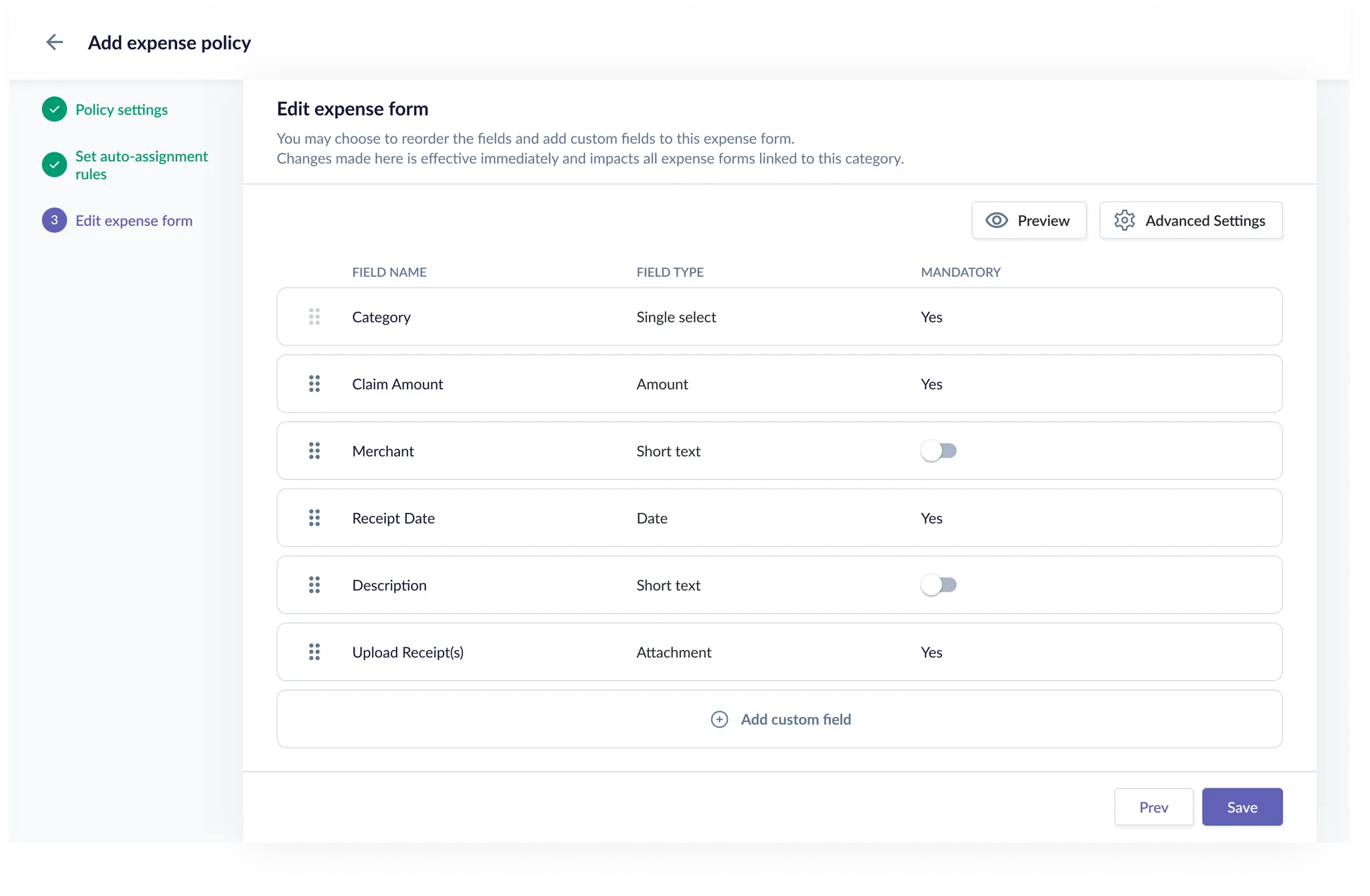
3. Expense Policy Approval Rules
You can now define flexible approval workflows for expenses by setting additional rule conditions and assigning approvers.

Rule Conditions
You can set rules based on:
Amount:
Trigger approvals for amounts greater than, less than, or between specific values.Category (mutually exclusive with Policy):
Applies to all policies under the selected category.
Policy (mutually exclusive with Category):
Applies only to the selected policy (new policies won’t inherit automatically).

⚠️ You can combine amount with either category or policy — but not both in the same rule.
4. Profile Page > Expense Tab: View Assigned Policies & Limits
Employees now have a clear view of all assigned Expense Policies directly in their profile.
Each Expense Policy Card displays:
Claimable Balances (Annual / Monthly / Per Claim)
Effective Date & Policy Period
Renewal Schedule
Policy Limits & Remaining Balance
Associated Expense Records (within current period)
Policy History (if applicable)
This transparency reduces employee queries and supports self-service balance tracking.
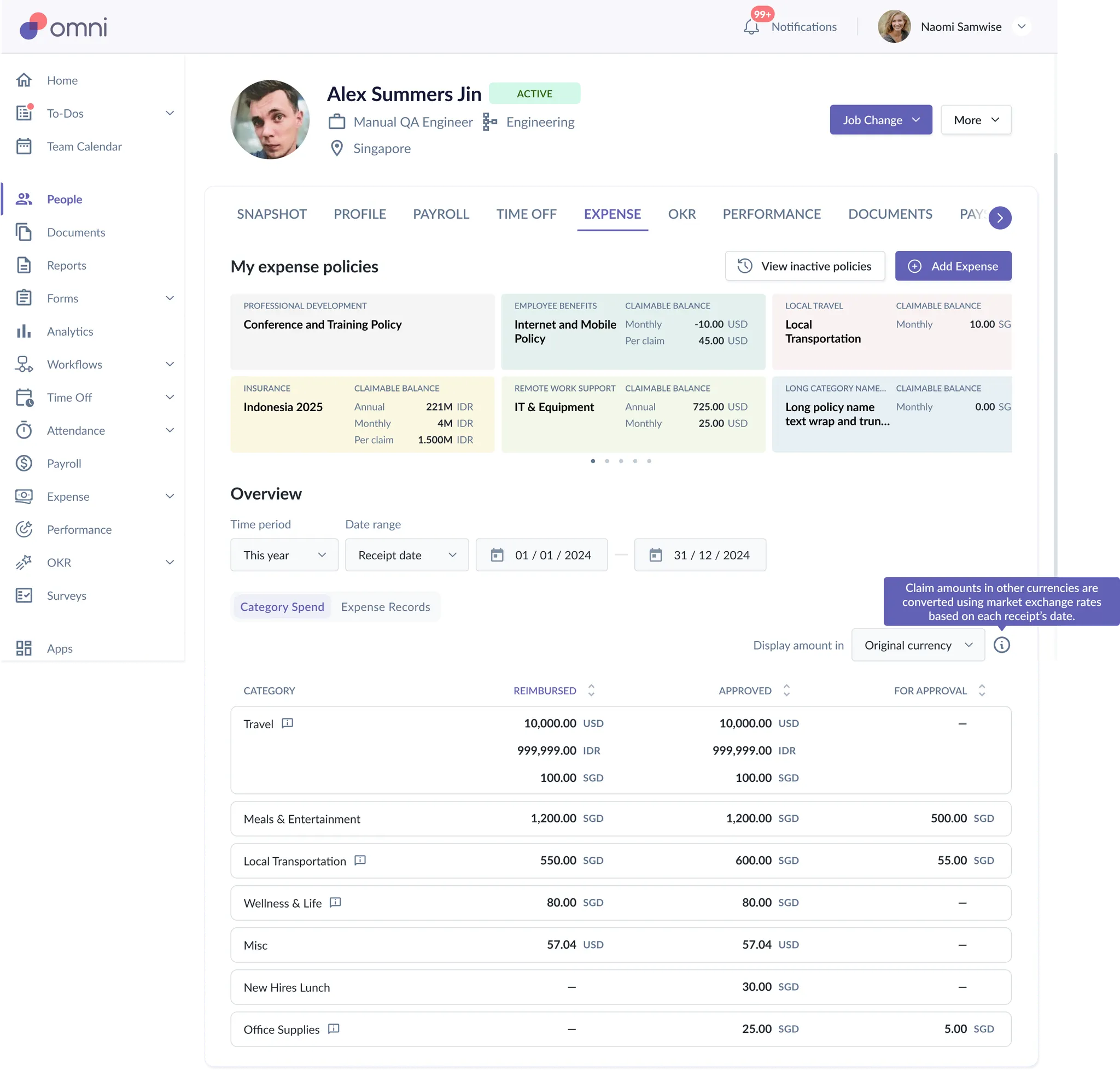

5. Expense Submission Flow: Select Policy & View Claimable Balance
When submitting expenses, employees now:
a) Select an Expense Policy (not just a category).
b) View claimable balance in real time.

Balances are automatically calculated based on:
Submitted or approved expenses
Policy’s limit deduction rule (Submitted Date or Receipt Date)
⚠️ Hard Limit Enforcement:
Claims that exceed available balance cannot be submitted.
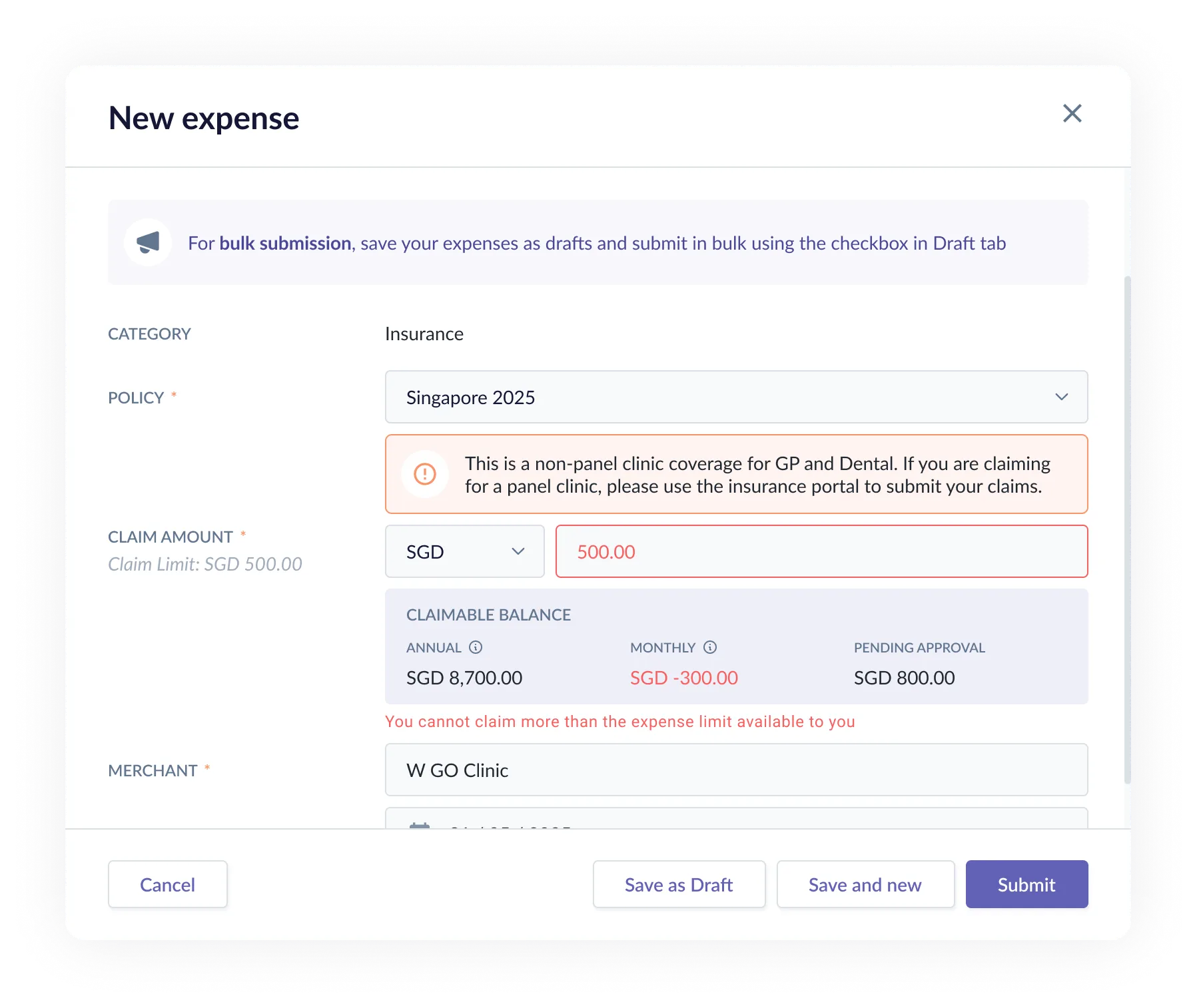
6. Expense Tab — To Reimburse: New Policy Filter
Finance and admins can now manage reimbursements more efficiently.
What’s New :
Filter by Category and Policy
Archived Policies appear in filters for easy reference
Exports respect applied filters (data emailed as Excel file)
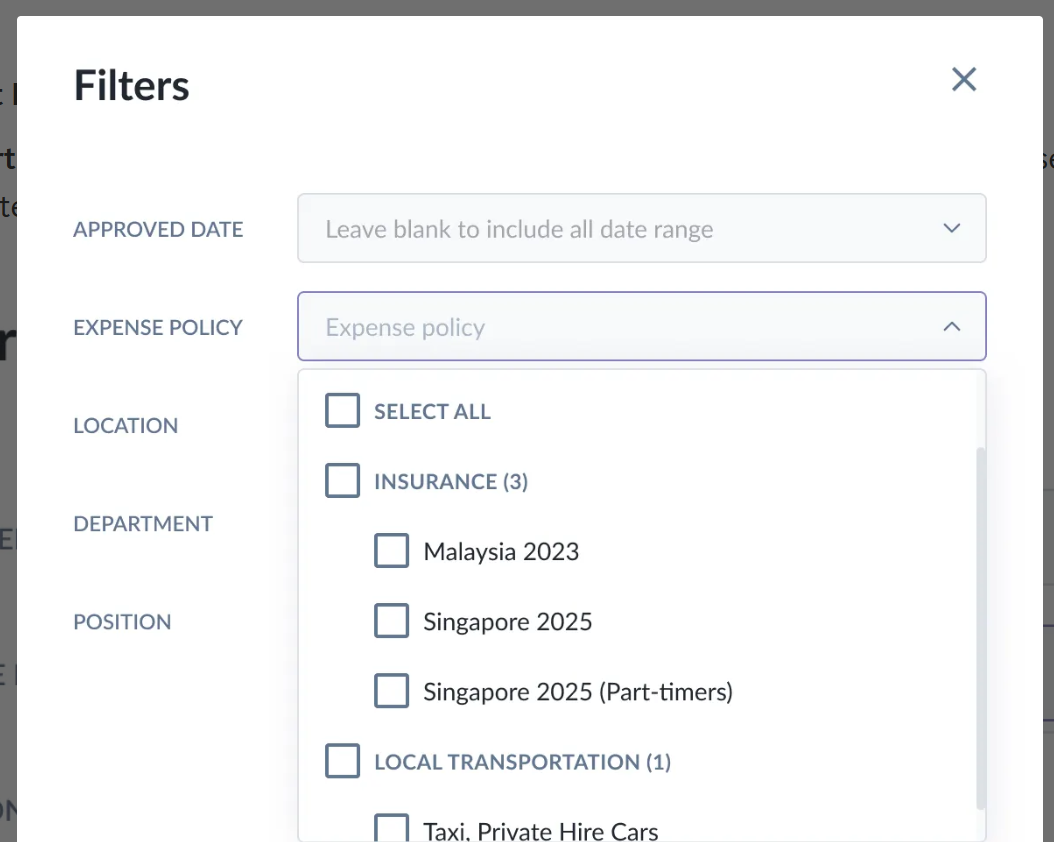
7. Expense Tracker: New Policy Filter in Report Downloads
When downloading expense reports, you can now:
- Filter by Category or Policy.
Perfect for:Cost center analysis
Regional spend tracking
Audit and compliance reporting
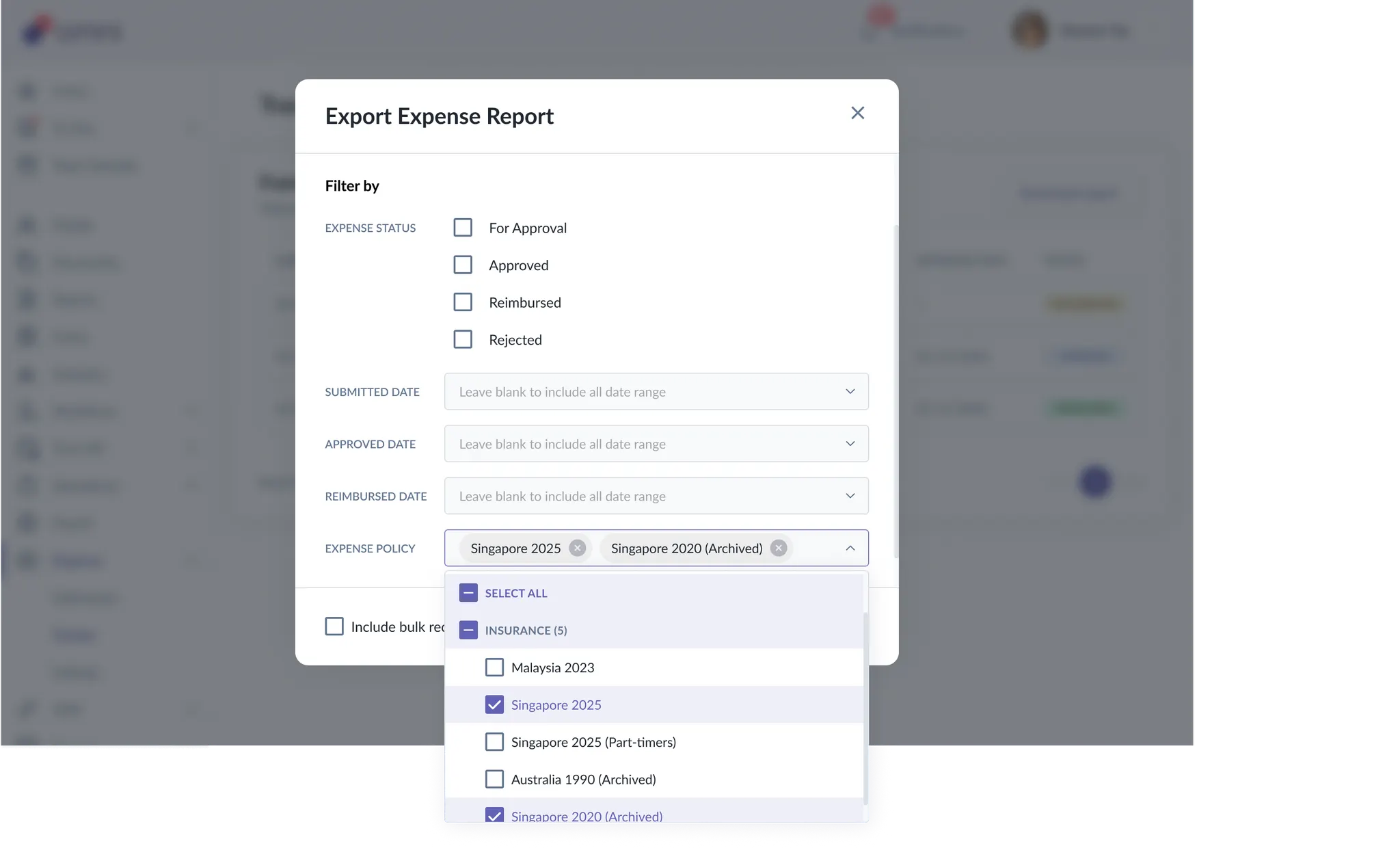
8. Expense Claims Sync to Payroll
Expense sync format has been enhanced for clearer reporting.
Previous Format: Category - Merchant
✅ New Format: Category - Policy Name - Merchant
This ensures more accurate reconciliation and reporting alignment.
9. Expense Manual Adjustment
Adjust expense limits manually at any time — no need for an effective date.
Example:
Monthly Limit: $100
Adjustment: +$10/month
✅ New monthly limit: $110 (until next policy reset)
⚠️ Manual Adjustment will affect BOTH Total Limit & Claimable balance, with expiry of adjustment default set to “Policy Renewal Date”.
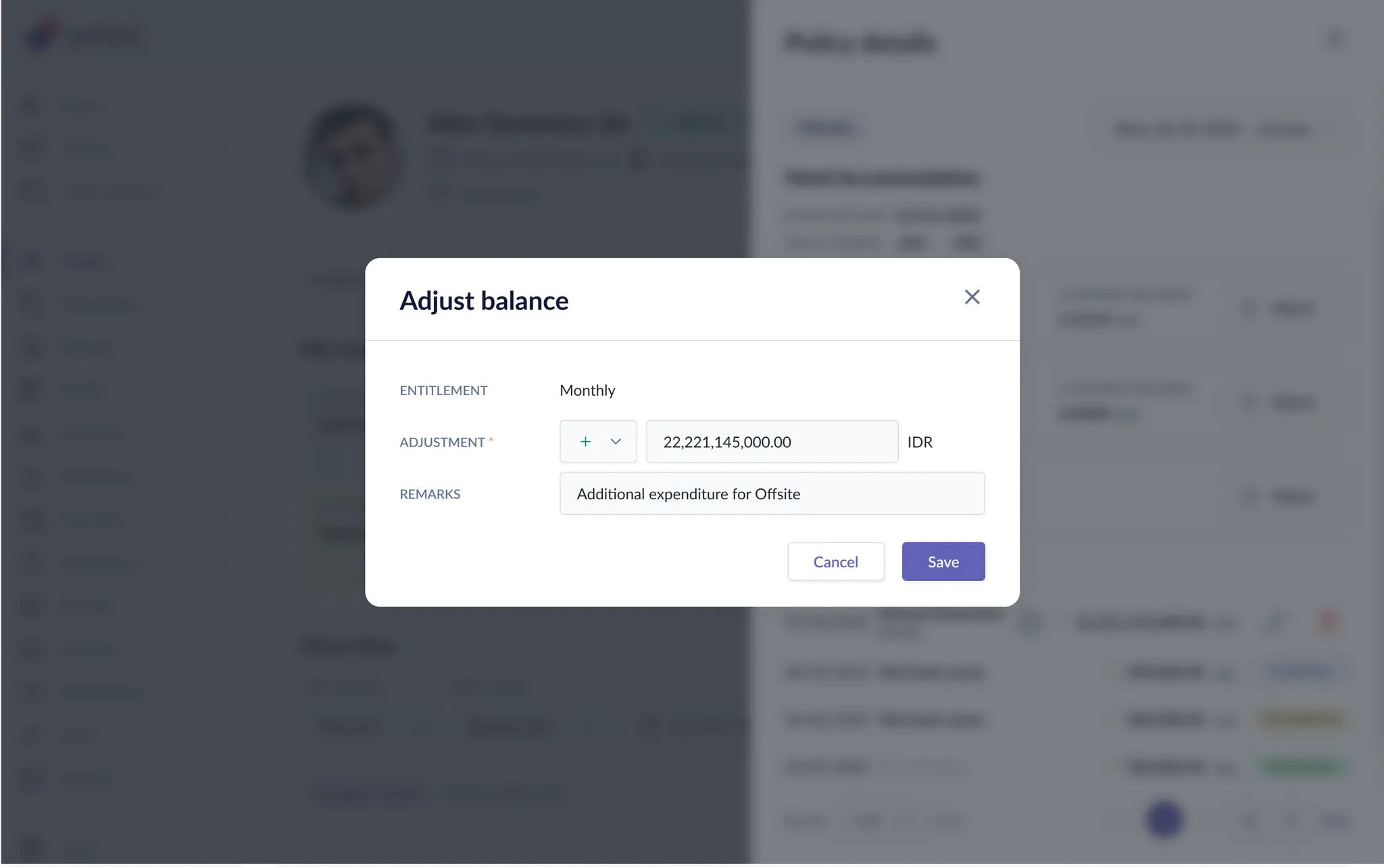

Summary
Expense 2.0 provides:
A more structured and scalable policy system
Automated assignment and approval flows
Real-time visibility for employees and admins alike
This upgrade sets the foundation for smarter expense management — reducing manual work and ensuring policy compliance across the organization.
Still Need Help?
Reach out to our support team should you need further assistance.
Was this article helpful?
That’s Great!
Thank you for your feedback
Sorry! We couldn't be helpful
Thank you for your feedback
Feedback sent
We appreciate your effort and will try to fix the article